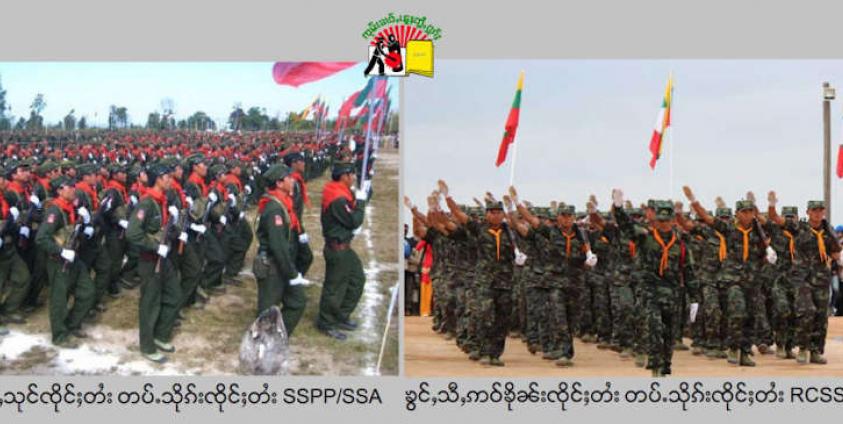Sai Pawnli — With Burma’s November general election nearing, it remains unclear how or if the Restoration Council of Shan State (RCSS) and the Shan State Progress Party (SSPP) and their soldiers will be able, or choose, to vote.
Neither armed organization has a policy outlining their soldiers’ participation—or lack thereof—in Burma’s elections.
While the Burmese government removed the RCSS from its list of “unlawful” organizations when the group signed the Nationwide Ceasefire Agreement (NCA) with the government and military in 2015, the SSPP is not a signatory to the NCA. It did, however, sign state- and Union-level ceasefires in 2012.
Spokespeople for both armed groups told SHAN that they haven’t asked that the government ensure that their soldiers can vote, and do not have a history of doing so.
“We haven’t demanded being able to vote in the election. We didn’t vote in 2010 or in the 2015 general election,” RCSS spokesperson Lt-Col Oum Khur told SHAN. “We still do not have a policy for it. We do not support or object to political parties.”
SSPP spokesperson Maj Sai Than Aung said that his organization had not demanded the right for its members to vote “because the government hasn’t recognized the SSPP as a legal organization.”
The RCSS described being under pressure from the Burmese authorities to join the electoral process, but other issues remain their priority.
“If we wanted to contest the election, we would have many opportunities,” Lt-Col Oum Khur said. “The Burma Army wants our leaders to join a political party. They want our leaders to run for election. We continue to stand for our national causes. Clashes are ongoing. We don’t have any plan to establish a political party.”
While exact troop numbers of the RCSS and SSPP are unknown, and spokespeople declined to reveal the statistics, ethnic media network Burma News International reported that the RCSS and SSPP each have an estimated 8,000 soldiers.
A village headman, who spoke to SHAN on the condition of anonymity, said that Shan soldiers would be able to vote in the election in whatever constituency they are registered as living, if they chose to do so.
Also based in Shan State are a total of 164 Burma Army battalions, and at least six Light Infantry Divisions with troops deployed in Shan State. Burmese soldiers and their family members are expected to vote in the general election.







